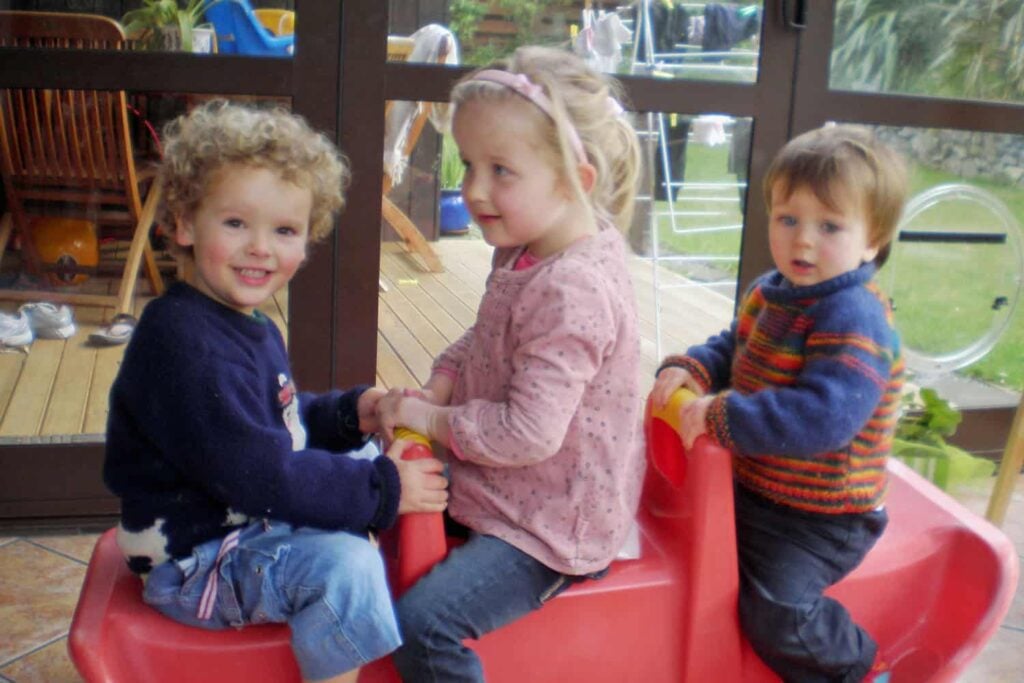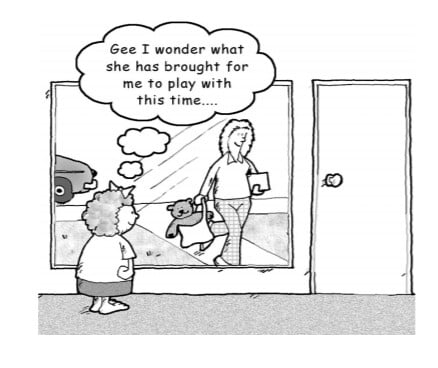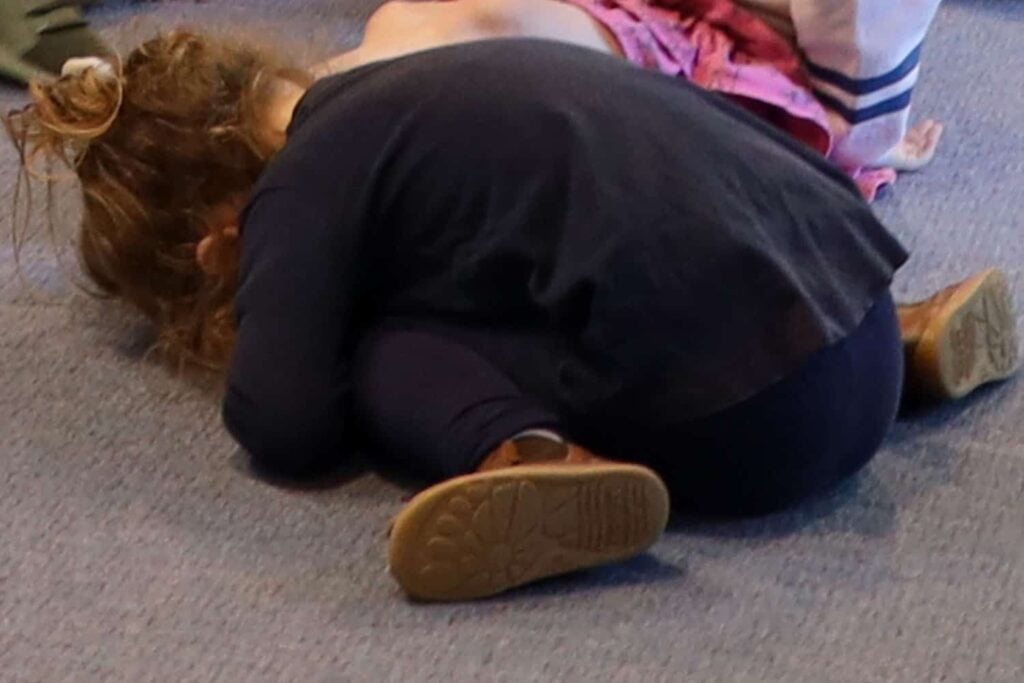See below for the articles published in the NZ-International Research in ECE Journal, 2017, Volume 20(1). To read any article a member login is needed – join us if you are not already a member. Many libraries subscribe to the journal so you may be able to view articles through your library’s system.
Order a copy of any article
Type in below the year, volume number and author(s) of the article you wish to order. The price per copy is NZ $19. Once you have completed your order it will emailed to you within 24 hours.
Te Whāriki: Curriculum or philosophy
Chris Jenkin
Auckland University of Technology, NZ
Abstract:
Te Whāriki, the New Zealand national early childhood curriculum, has taken early childhood education in Aotearoa onto the world stage. It has clarified the essence of what we believe is a bicultural country, strengthened the articulation of the depth of thinking that underpins our practice, and opened up opportunities for discussion, exploration, and reflection on practice. However, early childhood teachers continue to struggle to implement content within Te Whāriki. This article is based on a conference presentation in New Zealand which generated interest and animated discussion, and aims to help clarify how Te Whāriki should be interpreted and used. It draws on literature and data to investigate whether the lack of specific content within Te Whāriki means it should be considered a philosophy rather than a curriculum. Data was collected in two ways. First, Te Tiriti-based (bicultural) aspects of Te Whāriki were analysed in relation to definitions of curriculum and philosophy. The second involved semi-structured interviews with two research participants involved in running early childhood centres. While arguing that Te Whāriki is predominantly a philosophy, the article considers the implications for the early childhood workforce of viewing Te Whāriki as a curriculum. It also suggests the possibility that Te Whāriki in fact occupies a third space as a curriculum framework.
Key words: Te Whāriki; bicultural; curriculum; philosophy; interviews.
Full reference
Jenkin, C. (2017). Te Whāriki: Curriculum or philosophy. NZ International Research in Early Childhood Education Journal, 20(1), 1–16.
Creating an early childhood curriculum pathway for sustaining indigenous Fijian cultural knowledges
Lavinia Tiko
The University of the South Pacific, Fiji
Abstract:
The rising multicultural nature of Fiji’s population calls for practices of equality and diversity in terms of early childhood education curriculum. Research suggests that children achieve better outcomes when their diverse strengths, abilities, interests and cultural practices are understood and supported (Derman-Sparks & Ramsey, 2011; Edwards, 2009; Fleer, 2010; Sims, 2011a). Valuing and respecting equality and diversity is vital for children to develop a strong sense of identity. This is also explicated in curriculum frameworks such as the Australia’s Early Years Learning Framework, Belonging, Being and Becoming (Department of Education, Employment and Workplace Relations [DEEWR], 2009) and in Te Whāriki (Ministry of Education, 1996), the national New Zealand Early Childhood Curriculum. In this research, the experiences and ideas of the research participants were presented through their own words. They described their childhood experiences in homes, villages and in educational settings, and describe how Indigenous Fijian children today are experiencing very different childhoods compared to the past. Early childhood education and primary education were seen as major contributors and transmitters of Western knowledges to Indigenous Fijian people and the research participants perceived young children to be the most affected by these knowledges. There were some key elements of Indigenous Fijian cultural knowledges and epistemologies that participants agreed need to be preserved and maintained, although there were some areas of disagreement. This paper calls on the need for Indigenous Fijian cultural knowledge to be embedded into the Fijian early childhood education curriculum as a form of recognising and valuing equality and diversity of the Indigenous Fijian people.
Key words: Equality; diversity; social justice; culture.
Full reference
Tiko, L. (2017). Creating an early childhood curriculum pathway for sustaining indigenous Fijian cultural knowledges. NZ International Research in Early Childhood Education Journal, 20(1), 17-33.
Developing curriculum for the early years: A perspective from Bangladesh
Rokhsana Parveen* and Jane Bone**
*Ministry of Primary and Mass Education Bangladesh
**Monash University, Melbourne
Abstract:
In Bangladesh significant progress has happened in the field of early year’s education through both government and private initiatives. Pre-school education occurs through informal classes in government primary schools, in English-medium kindergartens and in Non-Government Organisations (NGO). Bangladesh has developed its first pre-primary curriculum and the government of Bangladesh approved the curriculum document named ‘Pre-primary Curriculum’ in 2011. This article will present an overview of the early childhood curriculum developed in Bangladesh and discuss the influences at work during the curriculum development process from the perspective of one of the first author – a Bangladeshi woman studying for a higher degree in Australia. The early childhood curriculum had to be acceptable for a large and diverse population. The narrative of the emergence of early childhood education in Bangladesh, a country with a population of 156.6 million, is presented, and reference is made to the New Zealand curriculum, Te Whāriki, and the Early Years Learning Framework for Australia, Being Belonging and Becoming. Finally the article presents insights about curriculum development in the Bangladeshi context.
Key words: Curriculum; pre-primary education; early childhood; diversity.
Full reference
Parveen, R. & Bone, J. (2017). Developing curriculum for the early years: A perspective from Bangladesh. NZ International Research in Early Childhood Education Journal, 20(1), 34-45.
A multi-dimensional approach to pedagogical development in long day care centres
Elspeth McInnes*, Victoria Whitington*, Kaye Colmer**, Jamie Sisson* and Mary Scales**
*University of South Australia, Adelaide
** Gowrie South Australia
Abstract:
Since 2013 Australian Long Day Care Centres have offered universal access to four year olds to a preschool programme for fifteen hours per week, led by a four year early childhood degree qualified teacher. The South Australian Department for Education and Child Development funded research and consultancy to strengthen universal access to preschool programmes in child care centres. This study reports on a project developed by Gowrie SA and the University of South Australia. The aim of the research reported in this paper was to investigate the efficacy of the suite of learning options intended to improve preschool programme quality. The project used an action research approach with multiple learning options offered to directors, teachers and other educators to establish site-based Professional Learning Communities. The University of South Australia investigated the suite of learning options using both qualitative and quantitative data with the aim of determining their efficacy. This paper reports on that investigation. The engagement of directors in pedagogical leadership was found to be vital to creating teamwork and enabling early childhood teachers to work in collaboration with a group of educators. Teachers and directors engaged in critical reflective practices, resulting in curriculum innovations that were integrated into preschool programmes. This paper argues that both centre leadership, and educators’ extended engagement in professional learning communities are central to transforming Long Day Care Centres to become effective providers of universal access to preschool programmes.
Key words: Preschool programmes; leadership; professional learning; action research.
Full reference
McInnes, E., Whitington, V., Colmer, K., Sisson, J. & Scales, M. (2017). A multi-dimensional approach to pedagogical development in long day care centres. NZ International Research in Early Childhood Education Journal, 20(1), 46-58.
Making inclusion happen in early childhood setting: Excepts from success stories
Thecla Kudakwashe Moffat
Ministry Of Education, NZ
Abstract:
This paper explores families’/whānau and teachers’/kaiako perspectives and practices of inclusion in two early childhood education settings in Aotearoa. Purposive sampling was used to select the settings on the basis of their Education Review Office (ERO) report which identified them as inclusive. A mixed method approach (Newman, Newman & Newman, 2011) was used to find out how these two ECE settings met children’s individual education needs. Qualitative and quantitative data collection methods were used in this study which included questionnaires, focus group interviews, documentation analysis and observations. Centre philosophies and policy documents were analysed. The findings revealed that inclusion can be a success in early childhood education if well managed. Meeting the needs of individual tamariki and their whānau was a measure of successful inclusion. It was concluded that inclusive education includes the following: working in partnership with whānau, collaboration and communication, the quality of teacher-child interaction and having an inclusive philosophy, curriculum, clear set policies and procedures for kaiako. The attitudes of the partners in an early childhood setting also define what happens in it. The successes are highlighted, so that other educational services across sectors may learn from them.
Key words: Inclusion; child needs; partnership; communication; inclusive education.
Full reference
Moffat, T.K. (2017). Making inclusion happen in early childhood settings: Excepts from success stories. NZ International Research in Early Childhood Education Journal, 20(1), 59-68.
Children as photographers: Joyful exploration
Courtney Lee and Cheryl McConnell
Eastern Institute of Technology, NZ
Abstract:
This paper describes what happened when children in an early childhood centre in New Zealand were facilitated to document their own views while having unrestricted access to a camera. The investigation asked how would children’s unrestricted access to the camera enable them to document their interests, and how would this enable the children to assess their learning when they revisited and reflected on the photographs they chose to take? The results suggest engagement and joyful exploration when children have freedom to use the camera at their discretion. When teachers seek children’s views, children are not only willing to share their views but through sharing and reflecting, the learning becomes enhanced for both teachers and children. Children become more curious, engaged and competent.
Key words: Children’s views; assessment; learning; photography.
Full reference
Lee, C. & McConnell, C. (2017). Children as photographers: Joyful exploration. NZ International Research in Early Childhood Education Journal, 20(1), 69 -80.









